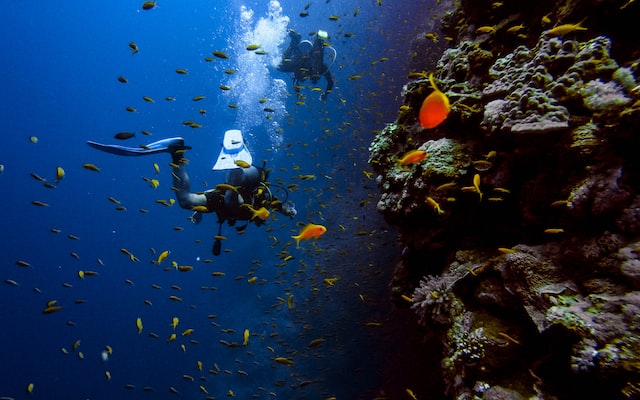#scuba The Basics Of Scuba Diving: An Easy Guide For Beginners – Salon Privé Magazine
[ad_1] Are you ready to explore the wonders of the deep blue sea? Scuba diving is a thrilling experience that can bring you closer to the aquatic world and its inhabitants. Whether you’re an experienced diver or just starting out, this guide will teach you all the basics of scuba diving so that you can
[ad_1]
Are you ready to explore the wonders of the deep blue sea? Scuba diving is a thrilling experience that can bring you closer to the aquatic world and its inhabitants.
Whether you’re an experienced diver or just starting out, this guide will teach you all the basics of scuba diving so that you can dive into your next adventure with confidence.
Before you take the plunge, it’s essential to understand the basic principles of scuba diving. The most important part of preparing for a dive is learning about the physiology and physics of diving.
This includes understanding how pressure affects your body when underwater and how to equalize pressure in order to prevent damage to your ears and sinuses.
You can learn to scuba dive by taking an introductory course offered by a certified dive instructor.
What Is Scuba Diving?
At its most basic level, scuba diving is the act of swimming and exploring underwater using special equipment. This includes a self-contained underwater breathing apparatus (SCUBA) that allows divers to stay submerged for extended periods of time.
The SCUBA system provides oxygen to the diver and is usually composed of a regulator, buoyancy control device, and wetsuit.
How Deep Can You Go?
The maximum depth for recreational scuba diving is 130 feet (40 meters), but most divers stay within the range of 10-30 feet (3-9 meters) to ensure safety and comfort.
The deeper you dive, the more important it becomes to understand the principles of physics, physiology, and decompression.
Preparation For Scuba Diving
Scuba diving is a thrilling and rewarding experience, but it is important to prepare properly before taking the plunge.
Preparing for a dive involves researching the terrain of the dive site, understanding the basic principles of scuba diving and physics, learning safety protocols, and obtaining proper certification.
Here are the other things you should consider before diving:
- Proper Dive Gear: Before you go scuba diving, make sure that you have the appropriate gear for the dive. This includes a regulator, buoyancy compensator (BC), and wetsuit. Most dive stores will rent out all of this equipment to beginners or certified divers who need additional items for their dives.
- Dive Site Research: Research the dive site before you go. Make sure to research both its terrain and local marine life so that you know what to expect.
- Medical Clearance: It is important to get a medical clearance if you have any pre-existing medical conditions or injuries that could affect your performance underwater.
- Knowledge of the Rules and Regulations: Make sure to familiarize yourself with all the rules, regulations, and safety protocols that are associated with scuba diving.
In Conclusion
Seeking out a certified dive instructor to guide you in the basics of scuba diving is highly recommended for both safety and enjoyment. With proper preparation, you can experience all that the deep blue sea has to offer.
Becoming one with the underwater world is an amazing sensation, and you can enjoy it too. A lot of practice and patience can open up a world of discovery.
Adblock test (Why?)
[ad_2]
Source link










Comments